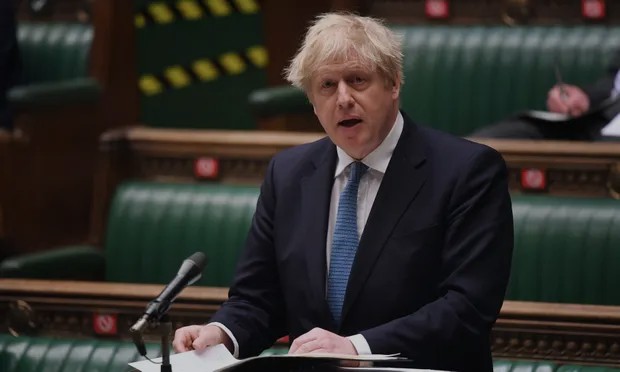As Boris Johnson prepared to give MPs a “Covid update”, it became clear No 10 has made the calculation that now was the right moment to announce an inquiry – though not yet to allow it to start work.
Johnson’s team will hope that having a firm date in place, instead of his repeated promises of an inquiry “when the time is right”, will help to neutralise – or postpone – some of the toughest questions about the pandemic, at least for now.
But they will also have their eyes on a much larger prize: the next general election.
In the short-term, the prime minister’s management of the crisis is set to come under fierce scrutiny at Westminster. Later this month, Johnson’s erstwhile right-hand man Dominic Cummings is due to give evidence at a potentially explosive select committee hearing.
Cummings has made clear he intends to draw attention to what he regards as the failings of the government’s response to the Covid pandemic – including the fateful decision to reject scientists’ advice, and refuse to call a lockdown last September.
His evidence – coming from one of the few people who was in the room for key decisions and is no longer bound by collective responsibility – is being hotly anticipated at Westminster.
It can insist all such matters – did Johnson fail to grasp the scale of the crisis? Was the Department of Health a “smoking ruin,” as Cummings has previously claimed? – will be examined sombrely, from all sides, at the public inquiry to come … with results of the inquiry after the next General Election.
As to the question of why the inquiry’s work cannot begin sooner, as bereaved families and opposition parties have demanded, Johnson claimed the key protagonists remain too busy.
According to thinktank the Institute for Government, most public inquiries take “around two years” to report back, with the duration of the 69 that were launched between 1990 and 2017 varying between 45 days, and 13 years and three months.

Comments
November 1, 2023 07:43
Inquiries like this are Geometry Dash typically meant to identify what went well and what didn’t during the pandemic response. The findings can be used to make improvements for future health crises.